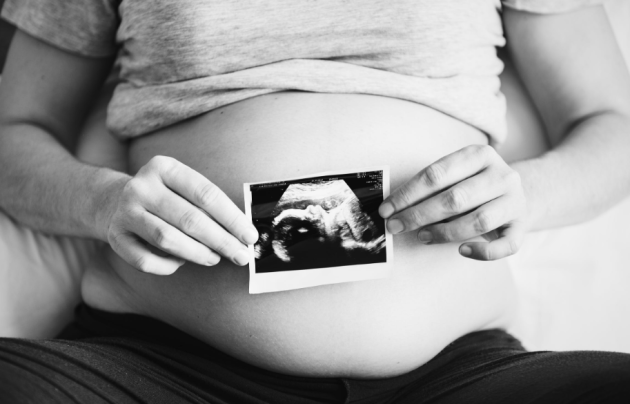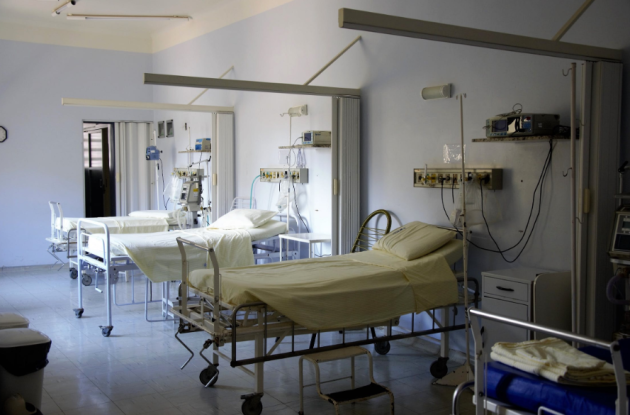
Would you decide to have a baby in the surrogacy capital of Europe?
Amid shutdowns in commercial surrogacy programmes in some of Europe’s most notable destinations, parents from abroad are turning their hopeful eyes to Ukraine. Would you?
While it’s rarely the first choice of any hopeful family, surrogacy can sometimes be the last viable option available to couples in need.
While contemporary medicine has be able to address a myriad of infertility issues, there are still some that are insurmountable. Leaving parents in need with few options.
Surrogacy is a hot debate in the media right now and has been for at least the last decade. Few countries have ideal legislation concerning the practice while others outright ban it.
Countries that were prominent for commercial surrogacy practices, such as India, Thailand, and Nepal, have closed extra national programmes due to reports of exploitation.

So where does that leave parents hoping to secure the future of their families? “Most of our clients are heartbroken when they come to us,” a spokesperson for a prominent multinational surrogacy company explains.
“Surrogacy is rarely anyone’s first choice, and the faith that the process requires is monumental.”
Dr. Rashmed Tounsend, has been working with the Valencia based company Ilaya since it’s advent in 2011. Ilaya services Ukraine surrogacy programmes but operates out of Spain.
“I think that most couples would prefer to work with a surrogate that was local to their home country, but due to legislation and cost, that option is largely unavailable to them,” Tounsend tells us.
Ukraine has seen a surge in their surrogacy numbers since larger countries have been forced to ban the practice, but booming business hasn’t been enough to curb some couples concerns about exploitation and treatment of surrogate mothers.
Following the terrifying reports of the exploitative practices of surrogacy industry leaders, many intended parents hesitate to look abroad for their possible options. However, many are left with no choice.

With the rising costs of surrogacy programmes at home, or strict laws that don’t allow for a reliable avenue to pursue such procedures, families aren’t given many options.
The average cost for a surrogacy program in the US starts at around $90,000. Prices continue to rise should patients require multiple IVF attempts or run into other complications.
And that’s only if you live in a state where surrogacy is legal. “Couples from states that do not allow for surrogacy can see an increase in their total costs due to travel arrangements and necessities.” Tounsend reminds us.
For families from such countries as the UK or Australia, travelling to a country like the U.S. for surrogacy is completely out of the question, due to financial constraints.
This leaves these families searching for options that are closer and much less costly. “Ukraine then becomes a much more viable option, because it’s located in mainland Europe, so no specialised visas are required for travel.” Tounsend says.
Flights from the UK to mainland Europe can be obtained at a fraction of the cost of those to the US.

Surrogacy: The Only Choice for Some
Surrogacy in the Ukraine has been strictly regulated since 2000. Laws outlining the rights of intended parents, as well as setting parameters for who is eligible to become a surrogate, were set in place.
Largely due to this legislation, as well as having high standards for medical care, saw Ukraine sweeping up many families who were looking to secure a surrogate outside of their home country. However, these laws can be difficult to regulate properly.
There have been reports for surrogate mothers receiving less than ideal medical care, and being victims of obvious malpractice. One report mentions mothers being treated “like cattle” and mocked by doctors.
While officials stress that this is not the norm, whispers of malpractice and embryo swapping have also been heard, although are still unfounded as of yet.
While it may not be an easy choice to make for many couples, it is one that has provided positive results for many.
Health experts in Ukraine estimate that there are over 2,500 babies born to surrogates each year in their country, which makes them familiar with the practice.

They also offer novel medical techniques and incentives that are not seen in other countries, like an unlimited number of IVF attempts, and no age restrictions regarding gamete supplication from intended parents.
Surrogate mothers that are found eligible are set to earn well above what would be expected from a Ukrainian minimum wage.
However, commercial surrogacy abroad is still not risk free, and hopeful parents are urged to do thorough research before choosing a clinic to continue the procedure with.
Which continues to make the choice a difficult one for families who worry about more than just the financial costs of surrogacy.
“Ukraine surrogacy is just one of the options that we offer prospective parents. There are other avenues available to some couples.
While it’s not the first choice for many, it’s a choice that our clients are extremely satisfied with in the end. Ultimately, our goal is to provide safety and happiness to our clients and our surrogate mothers.
Whatever avenue is the best for all parties involved, is the one we pursue.” Tounsend says.









